Saxophone & Clarinet Lessons 503.888.5796
How We Learn
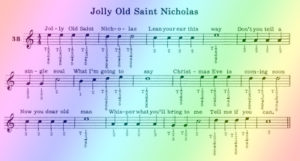
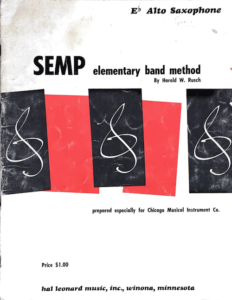
I was nine, almost ten years old when I took up learning the saxophone. A college student taught group lessons in a cramped practice room at the local music store in my metro Philly town.
How we learn in group lessons
There were about five or six of us beginners. We sat in a long row with our teacher anchoring down the right end. I was on the left end of the row; a place that felt far from the teacher’s guidance and help.
My place in the group lesson is important because it affected how I learned – or didn’t learn – during that first year of group lessons.
The music method we used taught note identification by finger positions, using numbers to correspond to the first three fingers on each hand. On my left hand was 1-2-3 and on my right was 4-5-6. That was the identification method used for the first ten pages of the 30-page method. We learned note names starting on page eleven.
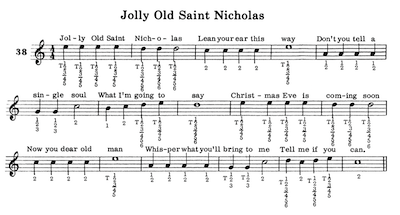
I continued using that method of note naming long after page ten. For me, the note names didn’t come easily. But I could show you the fingering in the blink of an eye!
From group lessons to private lessons
The following summer, my family moved from Pennsylvania to New Hampshire. I started private lessons with Roger Carrier, the local high school band director. Having his undivided attention on me quickly exposed my weakness of connecting the note name with the fingering.
He got me on the right track with learning note names (A,B,Bb, etc), proper hand position and good posture as well as starting a long tone practice that helped me develop my sweet saxophone sound. Thanks, Roger!
Three different styles how we learn
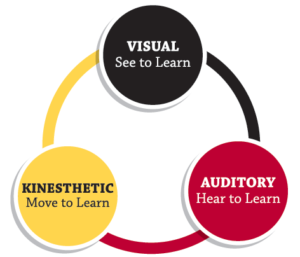 One of my jobs as a private music teacher today is to detect how an individual student best learns and supply them with instruction suited to them. We learn in some combination of visually, aurally, and kinesthetically.
One of my jobs as a private music teacher today is to detect how an individual student best learns and supply them with instruction suited to them. We learn in some combination of visually, aurally, and kinesthetically.
During lessons I incorporate all three styles and see which style resonates most with a student. In the example of learning a new note, I will play it and the student hears how it sounds. Then I describe the fingering. These are aural transmissions.
When I show the student where the note sits on the five-line music staff and draw out the fingering, I’m using a visual style of teaching.
Then I ask the student to say the note name while closing the keys on her instrument. This is a tactile experience.
I will encourage students to write in their own words what I’ve just shown them as well as draw the note on the staff. More tactile learning.
One of these ways will resonate more than the others for a given student. Regardless of which it is, I make an effort to help the learning process in multiple ways.
Personally, I learn best through the visual and aural styles. Although, when it comes right down to it, I use all the styles to teach myself new things; whether that is learning to finger a new difficult musical passage, learning how to spell a word, or finding my way in a new place.
My learning style must have changed over the years. In my younger years I was definitely more of a visual learner. Perhaps my immersion in music study for almost 50 years has shifted my greatest learning style to auditory. After taking the quiz linked below, I came out 65% auditory, 30% visual and 5%
Some articles about the three styles of learning
- The Three Different Learning Styles
- How to Spot Visual, Auditory, and Kinesthetic-Learning Executives
- Video: Learning Styles Theory
Take this quiz to find your learning style: 20 question quiz
Do you have a son or daughter or other young person in your life who has expressed interest in playing the saxophone or clarinet? If you live in the Portland, Oregon area, on the east side particularly, you’ll find easy access to my studio at the West foot of Mt. Tabor. Lessons are available for 30, 45, or 60 minutes for all levels of student.

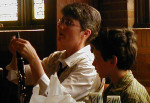
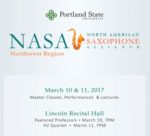
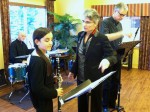
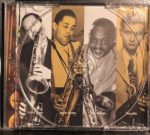

“Personally, I learn best through the visual and aural styles.”
Although now that I think about it, my dependency upon learning the fingerings first and sticking with them kind of leans toward a kinesthetic mode of learning.